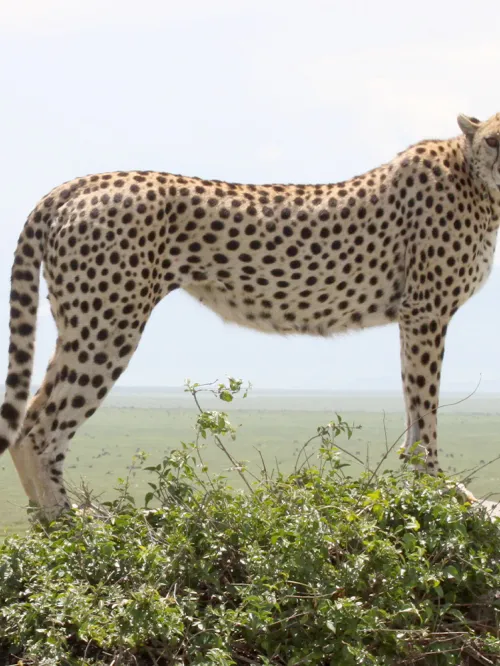Our work in Africa
Humane World for Animals tackles the root causes of animal cruelty and suffering to create permanent change. We make change at scale, advocating for policy change at all levels of government and working with companies so that they can be kinder to animals their businesses impact. We work in partnership with communities, bringing diverse expertise to the most complex issues, and doing it all with a compassionate and welcoming approach.
Our impact
We envision a world without animal cruelty, where humans and animals coexist peacefully. In Africa, we work to promote non-lethal solutions to human-wildlife conflicts, improve the lives of animals raised for food, end the illegal wildlife and captive big cat trade, advocate for a more plant-forward food system, increase access to spay/neuter services and primary veterinary care for companion animals, ending cosmetics animal testing and helping animals in disaster situations.
outside Kruger National Park have received an immunocontraceptive vaccine
have a permanent home at our sanctuary in Liberia
in South Africa have been sterilized through our Healthy Pets, Healthier Communities initiative
Latest News
Foie Gras in Canada
Paté de foie gras, translated from French, means "fatty liver." This so-called gourmet delicacy is undeniably the product of extreme animal cruelty. Force-fed cruelty Factory foie gras farms intensively raise ducks and geese in large, enclosed barns. For the last few weeks
Basic Vegetarian Nutrition
J. Gabriel/Stock.xchng While studies have shown the many health benefits of vegetarian eating, merely removing animal products from your diet doesn’t automatically ensure good health. As with any eating plan, it’s important to know some basic nutrition information. Staying physically active, avoiding
Battery Cage Eggs
Battery-caged hens suffer terribly. HSI Worldwide, hundreds of millions of egg-laying hens are confined in small, wire enclosures known as battery cages. Battery cages are so cramped that the hens are unable to perform many important natural behaviors, including walking, perching, dust
Intensive Confinement in Brazil: Learn More
Background information Egg Production Using Battery Cages Pork Production Using Gestation and Farrowing Crates Report The Welfare of Intensively Confined Animals in Battery Cages, Gestation Crates, and Veal Crates: Read HSI’s report detailing welfare concerns with these intensive confinement systems. [PDF] Fact
Crammed into Gestation Crates
Pigs are one of the smartest animals on Earth. Highly social, intelligent, and curious, they engage in complex tasks, form elaborate, cooperative social groups. Scientists have demonstrated that pigs are capable of playing simple video games, learning from each other, and even
About HSI in Brazil
Humane Society International (HSI) and our partner organizations together constitute one of the world’s largest animal protection organizations. We work globally to protect animals in laboratories, farm animals, companion animals, and wildlife. We participate in international forums such as the Food and
Barren Battery Cages in Brazil
Hens are intelligent animals who form strong family ties; yet, in Brazil, approximately 95 percent of egg-laying hens, or more than 80 million animals, are confined in battery cages so small that the birds are prevented from performing many important natural behaviors
Bullfighting: How you can help
The following is a list of ways you can help end the cruel spectacle of bullfighting: 1. Never attend a bullfight, and educate your family, friends, and coworkers, encouraging them to never attend bullfights. 2. Wherever you live, speak out against all
Provoking Aggression in Bulls
A bullfight is commonly depicted as “a dramatic struggle between man and beast,” ( 1) feeding the popular myth that bulls are fierce and violent creatures. Bullfighting spectators may agree as they witness the bull charge at the bullfighter, occasionally causing injury
Help us end animal cruelty
Start saving lives today by making a one-time gift—or protect animals worldwide all year long with a monthly contribution.
